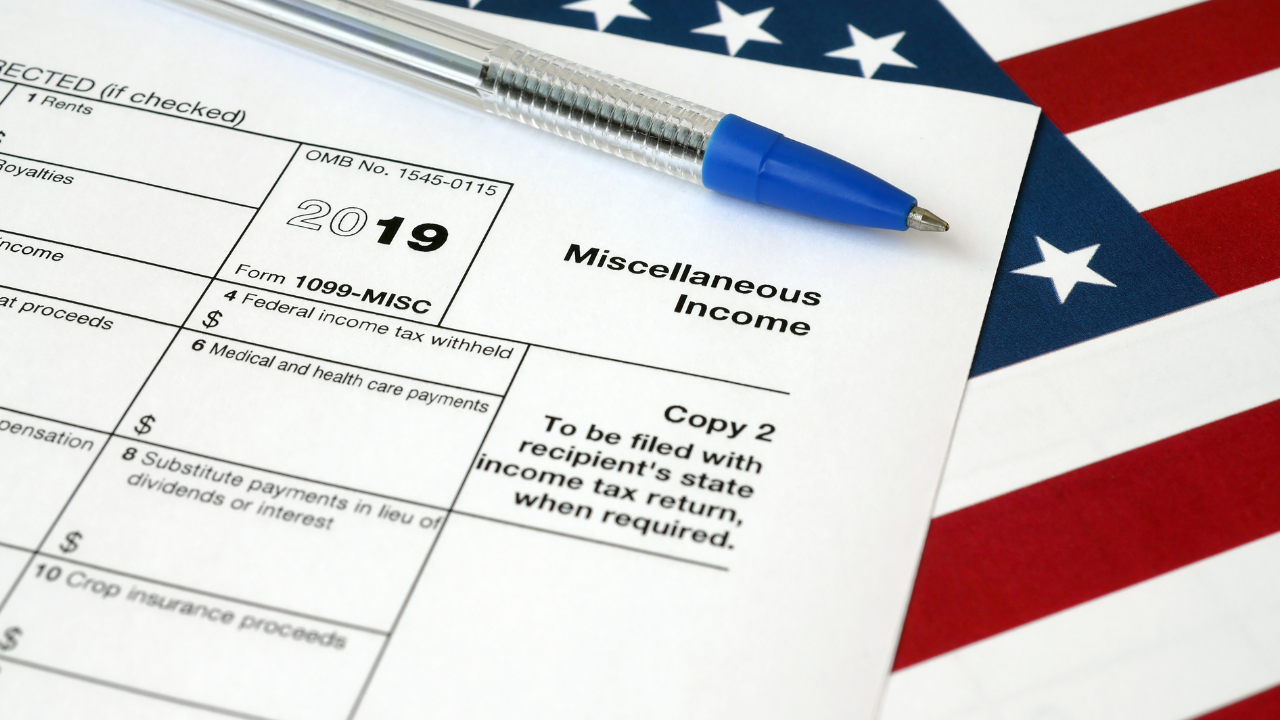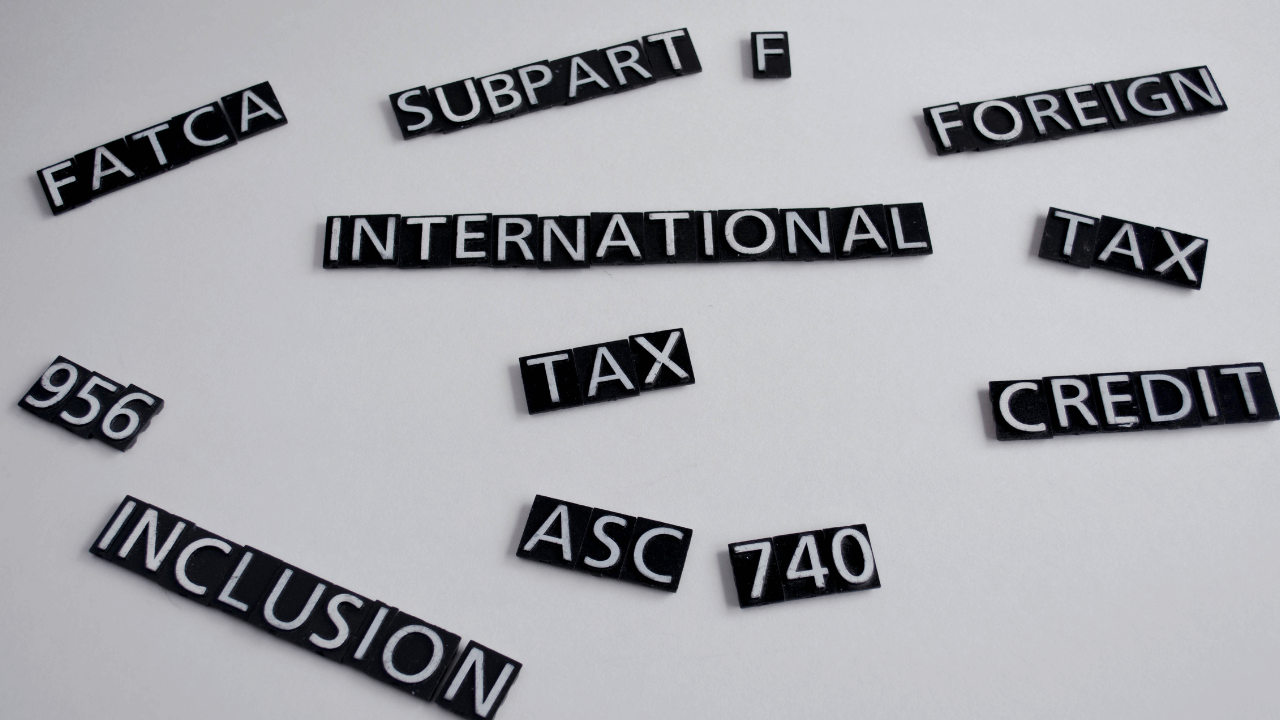
As a digital nomad, you have the freedom to work from anywhere in the world. You can live the dream of traveling to new exotic locations without taking a long hiatus from work. This lifestyle allows you to explore new cultures, meet interesting people, and experience different ways of living while still earning a steady paycheck.
However, this freedom comes with its fair share of challenges – including managing your finances and navigating the often confusing tax obligations.
In this comprehensive guide, we’ll break down everything you need to know about managing your taxes as a digital nomad so you can focus on what matters – living life to the fullest.
Understanding the Basics of Digital Nomad Taxes
In general, taxes for digital nomads can be complicated and overwhelming. As a global citizen constantly moving between countries and earning income from various sources, it is essential to understand how taxes work in your situation.
It’ll help you maintain compliance, avoid legal or financial issues, and take advantage of available deductions and exemptions.
By staying informed and seeking professional advice when needed, you can successfully navigate the world of digital nomad taxes and continue enjoying your nomadic lifestyle.
What Defines a Digital Nomad for Tax Purposes
For tax purposes, a digital nomad earns income while working remotely from different countries, often for an extended period. This can include freelancers, remote employees, or self-employed individuals who use technology to perform their duties. They’re defined by their residency status, income source, and understanding of what constitutes taxable income.
Determining your residency status is essential as it will dictate which country has the right to tax your income. You’ll be considered a resident of a country in which you have a permanent home base or address and where you are registered to vote or hold a driver’s license.
Once you have established your tax residency status, it is essential to understand what type of income is taxable.
For example, if you work for a company in another country but complete all of your work while physically present in a different country, you may only be subject to taxes in the country where you performed the work.
In this case, your employer typically taxes income earned through traditional employment methods such as salary or hourly wages before being paid to you.
However, if you’re a digital nomad earning freelance income or running a business, you must take care of your tax filings yourself. Each country has its own unique set of tax laws and regulations regarding digital nomads.
Double taxation agreements (DTAs) between countries prevent individuals from being taxed twice on the same income by allowing credits for foreign taxes paid or providing exemptions for certain types of income.
Therefore, it’s essential to keep track of all sources of revenue and understand what counts as taxable income according to local tax laws. You can also seek professional tax advice from a qualified accountant or tax specialist or hire a tax compliance service provider with experience in dealing with the taxes of location-independent professionals.
Common Tax Misunderstandings Among Digital Nomads
Despite being well-informed and tech-savvy, many digital nomads still face common tax misunderstandings. Being aware of these common tax misunderstandings can help you avoid potential issues and comply with tax laws.
Here are some of these misconceptions with clarification below to help you navigate the complex world of digital nomad taxes.
I only need to pay taxes in the country where I physically earn my income.
Unfortunately, it’s not simple for digital nomads, who often generate income online from clients worldwide. In some countries, you might have to pay additional charges and local taxes for your generated income.
However, many countries have taxation agreements that prevent double taxation – meaning you won’t be taxed twice on the same income. Therefore, it’s essential to research these agreements’ details before assuming you only need to pay taxes in one location.
I can deduct all my travel expenses as business expenses.
While traveling may contribute significantly to our work as digital nomads, you can’t deduct all travel expenses as business expenses. The critical factor in determining whether an expense is deductible is whether it is directly related to your business activities. For example, the cost of attending a conference or workshop may be deductible, but you can’t claim the cost of your trip to a museum.
I don’t need to report my foreign income if it’s under a certain amount.
Many digital nomads assume that they do not need to report foreign income on their tax return if it falls below a specific threshold. However, this belief could lead to penalties and fines from tax authorities. It’s always best to consult a tax professional and accurately report all your income sources.
The Concept of Tax Home and Its Impact
For traditional employees, tax home is typically easy to determine as it’s the location of their office or company headquarters. However, for digital nomads who have the freedom to work from anywhere in the world, it becomes a bit more complicated. The IRS has specific rules and guidelines for determining tax homes for individuals who do not have a fixed physical workplace.
If an individual spends more than 50% of their working hours in one location during a given year, they may be subject to local taxes and laws in that particular location.
You may be subject to different tax rates and regulations depending on which country or state your tax home falls under. However, you can choose to establish a tax home in a location with lower tax rates or more favorable tax laws.
You should consult a professional accountant or tax advisor to ensure compliance and accurately determine your tax home for each year and avoid any potential issues with the IRS.
How Worldwide Income Is Taxed for U.S. Citizens
The United States has a citizenship-based taxation system, which means that as long as you hold U.S. citizenship, you must pay taxes regardless of where you live or earn the income. This includes any money earned from employment, self-employment, investments, rental properties, or other sources.
The Internal Revenue Service (IRS) uses the Foreign Earned Income Exclusion (FEIE) to determine your tax liability on your worldwide income. This allows qualifying individuals to exclude up to $107,600 (in 2020) of their foreign-earned income from U.S. federal taxes.
The physical presence test requires you to be physically present in a foreign country for at least 330 days out of a consecutive 12-month period.
The bona fide residence test requires you to reside in a foreign country for an entire tax year (January 1st through December 31st). If you do not meet these tests but still earn foreign income while living abroad, your earnings will be subject to U.S. federal taxes.
In addition to federal taxes, U.S. citizens also have to consider state taxes, so it is essential to research and understand how your state of residency may impact your tax liability. It is also worth noting that while the FEIE excludes your foreign-earned income from federal taxes, it does not exempt you from other taxes such as Social Security and Medicare.
US Filing Requirements for Digital Nomads
A digital nomad lifestyle brings unique tax considerations, which can initially seem overwhelming. First and foremost, it is essential to understand that even as a digital nomad, you are still subject to US taxes if you are a US citizen or resident alien.
This means that you must report all of your income earned worldwide on your US tax return, regardless of where you physically reside. Therefore, understanding and meeting the US tax filing requirements is crucial in avoiding penalties and staying compliant with taxes.
Mandatory Tax Documents to File as a Digital Nomad
While working remotely and traveling the world may seem like an ideal way to live, it also means navigating a complex web of tax laws and regulations.
Understanding these mandatory tax documents is crucial when filing as a digital nomad to remain compliant with US tax laws and avoid any penalties or fines. Keep these forms organized and up-to-date throughout the year to ensure smooth tax filing.
1. Tax Residency Certificate
As a digital nomad, obtaining a Tax Residency Certificate from the countries where you stay for more than six months is essential. This document will serve as proof of your residency status and can help avoid double taxation.
2. Form W-9
This form certifies that you are exempt from backup withholding as a US person receiving payments outside the country.
3. Form 1040
The IRS requires all US citizens or residents who earn income abroad to file their taxes using Form 1040—Individual Income Tax Return. Even if you earned all of your income outside of the US, you must fill out and submit this form by April 15th each year unless an extension has been granted.
6. Form 2555/2555-EZ
These forms report foreign-earned income exclusion, which allows you to exclude a certain amount of your income from US taxes under foreign housing exclusion or the foreign housing deduction.
7. Form 1116
If you paid any foreign taxes on your income, you may be eligible for a tax credit using Form 1116 – Foreign Tax Credit. This form helps avoid double taxation on the same income by allowing the credit for foreign taxes paid.
Penalties for Late Filing or Non-Compliance
The US tax system has specific deadlines that must be adhered to avoid penalties and interest charges. It’s essential to keep these dates in mind throughout the year so you can plan accordingly and avoid any last-minute stress or complications.
The first deadline is April 15th, when most individual taxpayers must file their federal income tax returns.
If you are a US citizen or resident living outside the country on April 15th, you’ll automatically get an extension until June 15th.
You also need to keep track of quarterly estimated tax payments throughout the year due on April 15th, June 15th, September 15th, and January 15th of the following year.
In addition to federal taxes, many states have their income tax requirements with varying deadlines. For example, California has a state income tax rate ranging from 1% to 13%, with a filing deadline of April 30th for residents and non-residents. Failing to file your taxes on time can lead to hefty fines or legal actions.
1. Late Filing Penalties
If you fail to file your taxes by April 15th (or any extension granted), you may incur a penalty of 5% of your unpaid taxes per month, which can add up to 25%.
2. Non-Compliance Penalties
In addition to late filing penalties, if you fail to comply with tax laws, you can face other consequences, such as interest charges and hefty fines.
3. Penalties for Not Paying Estimated Taxes:
Not paying estimated tax payments could result in underpayment penalties which vary by country but typically range between 3-6% of the outstanding balance due.
Strategies for Minimizing Digital Nomad Taxes
Minimizing your taxes as a digital nomad requires careful planning and understanding of the tax laws in different countries.
By taking advantage of double taxation treaties, keeping accurate records, considering incorporation, and utilizing deductions and credits where applicable, you can effectively lower your tax burden while enjoying the freedom of being a digital nomad.
Maximizing Your Deductions and Credits
One key way to minimize the impact of taxes as a digital nomad is to take advantage of deductions and credits. These tax breaks can reduce your taxable income and lower the tax amount.
- Home office deduction: If you have a dedicated workspace in your home, you can claim a deduction for your rent or mortgage payments, utilities, and other related expenses.
- Travel-related expenses: You can claim deductions for many travel-related expenses, such as flights, accommodations, and transportation, for business purposes.
- Equipment and supplies: You can claim deductions for any equipment or supplies necessary for running your business, such as laptops, cameras, software subscriptions, and internet fees.
- Health insurance premiums: As self-employed individuals, digital nomads are responsible for their health insurance costs, which can be deducted from their taxable income.
- Foreign earned income exclusion: If you reside in another country for at least 330 days a year, you may be eligible for the Foreign Earned Income Exclusion.
- Child and dependent care: If you have dependent children or family members who require care while you work, you may qualify for this credit.
Utilizing Retirement Accounts for Tax Savings
Retirement accounts help you save money for the future and can also provide significant tax benefits in the present. That’s why an IRA and Solo 401k are worthwhile investments, which allow you to tap into tax benefits while saving for the future.
You can easily manage these plans online, freeing up more resources for your far-flung endeavors. Contributing to these plans lowers your taxable income by putting you in a lower tax bracket, resulting in lower taxes owed.
When utilizing retirement accounts for tax savings, you must remember that there are contribution limits and income-based restrictions. It’s crucial to stay within these limits to avoid penalties and take advantage of the tax benefits offered by these accounts.
Consult with a financial advisor or accountant specializing in working with digital nomads before deciding upon the retirement account best suits your needs.
The Role of Tax Treaties in Reducing Tax Liability
Tax treaties between two countries prevent double taxation and provide tax relief for businesses and individuals operating in both countries. They also include specific provisions for determining which country has the right to tax certain types of income.
For digital nomads, who often work remotely from different countries, understanding tax treaties is essential for minimizing their overall tax burden. It means that if you are a resident of one country but earn income from another, you will not have to pay taxes on that same income in both countries.
Another significant advantage of tax treaties like Portugal NHR Program for US LLCs is that they reduce or eliminate withholding taxes on dividends, interest, and royalties paid between two countries.
Withholding taxes are taxes imposed on non-residents who earn income from a particular country. These taxes can often be high and significantly impact a digital nomad’s earnings.
However, with a tax treaty in place, these withholding taxes can be reduced or eliminated depending on the terms agreed upon by the two countries. While each tax treaty is unique, staying informed can help you optimize your taxes and achieve financial stability while living a flexible lifestyle.
Navigating State Income Taxes as a Digital Nomad
State income taxes are separate from federal income taxes and are imposed by individual states in the United States. Each state has its tax laws and rates, so it’s crucial to learn more about them to ensure compliance and maximize potential deductions or credits.
Determining Your State of Residency
The first step in navigating state income taxes as a digital nomad is determining your tax residency status. It will depend on factors such as how much time you spend in each state during the tax year, where your permanent home is located, and where you are registered to vote.
It’s essential to keep track of your movements throughout the year and maintain thorough records to determine which states you may owe taxes to.
Some states have a “physical presence” rule, which means that if you spend more than a certain amount of time (usually 183 days) within their borders during the tax year, they will consider you a resident for taxation purposes.
Other states have an “economic nexus” rule where if you earn over a certain amount within their borders, regardless of your physical presence there, they will require you to pay state income taxes.
Avoiding Double Taxation at the State Level
To avoid double taxation (paying both federal and state income tax on the same earnings), digital nomads can take advantage of tax credits or deductions.
For example, if you paid state income taxes to multiple states during the year, you can claim a credit for those taxes on your federal tax return. Additionally, some states have reciprocal agreements where they agree not to tax income earned by residents of each other’s states.
Tips for Establishing Domicile in a Tax-Friendly State
Domicile refers to where an individual has a permanent home and intends to return after any travel period. Establishing a domicile in a tax-friendly state is a crucial consideration for digital nomads looking to minimize their tax burden.
You can even select states that don’t charge income taxes, such as Alaska, Florida, Nevada, Washington, Wyoming, etc,. It’ll only require you to purchase a residential property, register your business, open your account, or store your belongings in one of those states.
The Implications of Running a Business as a Digital Nomad
Running a business as a digital nomad can be challenging due to tax and legal obligations. But with proper planning and knowledge, it can be both exhilarating and rewarding. It allows you to blend your passion for travel and exploration with your business ambitions.
Thus, it’s crucial to have a good understanding of the laws and regulations of this lifestyle to ensure a smooth journey.
Choosing the Right Business Structure for Tax Purposes
Choosing the right business structure is a crucial decision for digital nomads when it comes to managing their taxes. Different business structures have different tax implications and choosing the wrong one could result in unnecessary expenses or missed opportunities for deductions.
The most common types of business structures are sole proprietorship, partnership, limited liability company (LLC), and C-corporation. Each structure has its tax advantages and disadvantages, so it’s essential to understand them before deciding.
Establishing an LLC allows you to experience the benefits of both sole proprietorship and corporation structures. It offers limited liability protection for its owners while allowing them to report profits and losses on their tax returns through pass-through taxation. LLC tax filings require less paperwork than corporations.
On the other hand, C-corporations have more complex tax filing requirements as they are taxed separately from their owners through corporate tax rates.
Reporting Global Income and Expenses
As your income and expenses may come from various countries, it is essential to report them accurately to ensure compliance and avoid any potential legal issues. However, this requires careful attention to detail and understanding tax laws in different countries. It’s important to distinguish between active versus passive income while reporting your global income and expenses.
Active income refers to earnings from services rendered, while passive income includes rental properties or investments that generate revenue without being actively involved.
Different countries have varying tax rates for active versus passive income; therefore, it’s essential to understand how to pay income tax for each type of income. By keeping accurate records, understanding tax residency status, and utilizing deductions and credits, you can adhere to tax obligations while minimizing your liability.
Be sure to consult with a tax professional for personalized advice tailored to your specific situation.
VAT and Sales Tax Considerations for Digital Entrepreneurs
Two common types of taxes that digital entrepreneurs need to be aware of are Value Added Tax (VAT) and Sales Tax. VAT is applied on the sale of goods and services, typically included in consumers’ final price.
It may apply to your online sales of your products or services to customers in countries where VAT is collected. On the other hand, sales tax is a tax levied by state or local governments within the United States on the sale of goods and services.
Similar to VAT, it applies at the point of purchase, and its rates can vary depending on location. Unlike VAT, sales tax only applies if your business has a physical presence (such as an office or store) in a particular state. So, you may need to register for and collect sales tax in certain states as a digital entrepreneur selling products or services online from the US.
Tips for International Tax Planning and Compliance
One of the many challenges digital nomads face when living and working abroad is understanding tax residency rules in foreign countries. Since you may be subject to taxes in multiple countries, clearly understanding these rules helps you ensure compliance with local laws and minimize potential tax liabilities.
Therefore, it’s advisable to seek professional advice before embarking on your digital nomad journey and regularly review your tax status, as it may change depending on your location and activities. By staying informed and proactive about taxation, you will always have peace of mind while enjoying the freedom of being a digital nomad.
Understanding Tax Residency Rules in Foreign Countries
Tax residency determines where an individual’s primary tax obligations lie based on their physical presence and economic ties with a particular country.
This means that even if you are not a citizen or permanent resident of a nation, you may still be considered a tax resident if you spend significant time there or earn income from local sources. However, tax residency rules vary by country, so it’s essential to research each location carefully.
Most countries have two types of residency tests: physical presence and economic connection. The physical presence test looks at how much time an individual spends in the country during the tax year, while the economic connection test considers factors such as property ownership, business activities, and family ties.
To determine your tax residency status in different countries, you can consult with an international tax specialist for advice tailored to your situation.
Benefits of Tax Treaties for Digital Nomads
Tax treaties often include provisions for reducing or eliminating specific types of taxes, such as withholding taxes on dividends, interest, and royalties.
These reductions can help digital nomads save money on their passive income from investments or intellectual property rights while working remotely. Additionally, tax treaties outline procedures to resolve these conflicts between two countries without causing you inconvenience or financial loss.
Some tax treaties also have specific clauses that allow individuals to claim certain deductions and exemptions when filing their taxes abroad. For example, some agreements may allow eligible taxpayers to claim deductions related to travel expenses or housing costs while working abroad as a digital nomad.
Moreover, many countries have entered into social security agreements to exempt self-employed digital nomads from double payment of social security contributions.
How to Avoid Common Pitfalls in International Taxation
The Foreign Housing Exclusion Deduction can be valuable for digital nomads looking to save on taxes. This deduction enables eligible taxpayers to exclude some of their foreign housing costs from their taxable income.
However, this deduction can be complicated to navigate, and there are a few common mistakes that individuals should avoid to ensure they get the most tax savings and stay compliant with the IRS.
- Failing to meet the requirements: Foreign Housing Exclusion Deduction requires specific residency and income requirements with eligible housing expenses. Therefore, you should thoroughly understand these requirements before claiming the deduction.
- Not keeping accurate records: You must maintain detailed and accurate records of your foreign housing expenses, or else you could face an audit or denial of your deduction. You must be able to corroborate your expenses with receipts, invoices, and lease agreements.
- Ignoring the limitations on the deduction: It’s important to be aware of the deduction’s limitations to calculate the deduction amount accurately. Otherwise, you might overestimate your tax savings, potentially triggering an audit.
FAQs
Do I need to file taxes in multiple countries?
If you earn income in different countries throughout the year, you may have to file taxes in multiple countries, depending on their tax laws.
How can I avoid double taxation?
Double taxation occurs when two or more countries require an individual or business to pay twice taxes on the same income. However, most countries have tax treaties to prevent double taxation and can provide relief through tax credits or exemptions.
How do I comply with tax laws while moving from country to country?
As a digital nomad, keeping accurate records of your income and expenses and any taxes paid in each country is essential. This will help you comply with tax laws and avoid penalties for improper reporting.
Can I claim deductions as a digital nomad?
Yes, you can claim deductions for expenses directly related to your work. However, these deductions must be supported by proper documentation.










